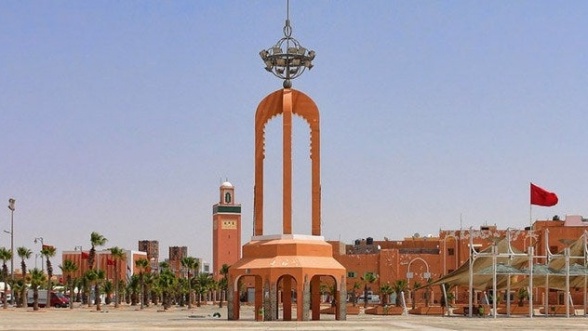C24: Senegal Reaffirms Support for Morocco’s Autonomy Plan

Dili (Timor-Leste) – Senegal reaffirmed, during the regional seminar of the UN Committee of 24 (C24) recently held in Dili, Timor-Leste, its support for the Moroccan Autonomy Initiative, deeming it the compromise solution to the regional dispute over the Moroccan Sahara.
The Moroccan Autonomy Initiative is consistent with international law, the United Nations Charter, and the various resolutions of the Security Council and the General Assembly, stressed Senegal’s Deputy Permanent Representative to the UN in New York, Ambassador Diamane Diome. During this seminar, the Senegalese diplomat noted that the Moroccan Initiative, described as serious and credible in successive Security Council resolutions since 2007, enjoys growing international support, accompanied by growing recognition of Morocco’s sovereignty over its southern provinces. He recalled that 117 countries, or more than 60% of UN Member States, including two permanent members of the Security Council, support this Initiative, noting that “in this spirit of unwavering support for a just cause, my country is delighted to have opened, on April 5, 2021, alongside more than thirty other UN Member States, a Consulate General in the Moroccan Sahara”. Diome also highlighted Morocco’s achievements in promoting human rights in its southern provinces, which were recognized by the Security Council, particularly in its Resolution 2756. He also praised the substantial investment policy and projects implemented as part of the new development model for the Moroccan Sahara, launched by His Majesty King Mohammed VI in 2015 with a budget of over $10 billion. This momentum attests to the Kingdom’s ambition to achieve a sustainable future for the populations of its southern provinces through the promotion of socio-economic and cultural development, he said. The Senegalese diplomat further welcomed the participation of democratically elected representatives of the Moroccan Sahara in the various activities of the UN Committee of 24. He also commended Morocco’s full respect for the ceasefire and its good-faith cooperation with MINURSO, urging the other parties to refrain from any actions that could undermine the political process. The speaker also highlighted the work of the UN Secretary-General’s Personal Envoy for the Moroccan Sahara, Staffan de Mistura, to relaunch the political process under the exclusive auspices of the United Nations. The diplomat invited Morocco, Algeria, Mauritania, and the “polisario” to commit in good faith to the Geneva roundtable process, following the same format as previous roundtables. Furthermore, he called for improved collaboration with United Nations programs and agencies to ensure optimal protection of the fundamental rights of the populations in the Tindouf camps, specifically their freedom of expression and association, as well as access to international humanitarian aid. The Senegalese diplomat finally reaffirmed his country’s full support for the territorial integrity of the Kingdom of Morocco and its full sovereignty over its southern provinces.

